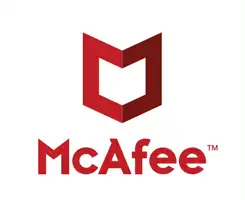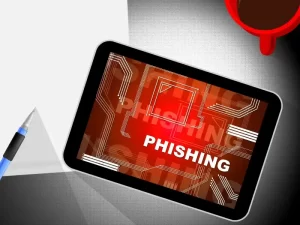Topic Covered in This Page
- Phishing Alert – McAfee Software Renewal Scams
- Fake emails from scammers posing as McAfee
- Keep Your Data Safe From the Latest Phishing
- recognize and protect yourself from phishing
- Payment For McAfee Subscription Email Scam

If you got a mail regarding your McAfee Antivirus Renewal, Upgrade, Activation, or Expiration. I could be a McAfee Software Renewal Scam
In your inbox, you got a mail regarding your McAfee Antivirus Renewal, Upgrade, Activation, or Expiration. I could be a McAfee Software Renewal Scam.

Read our complete post carefully
- How the McAfee Antivirus Renewal Email Scam Works?
- How do I identify such phishing emails?
- How do I prevent from McAfee phishing emails?
In today’s interconnected world, the need for robust cybersecurity is more evident than ever. Antivirus software like McAfee provides essential protection against online threats. However, cybercriminals are quick to exploit this necessity, often using deceptive tactics like McAfee Antivirus Renewal Email scams to target unsuspecting individuals and businesses. In this article, we’ll explore the modus operandi of these scams and offer tips on how to protect yourself against falling victim to them.
How the McAfee Antivirus Renewal Email Scam Works?
McAfee Antivirus Renewal Email scams are designed to mimic legitimate renewal notices sent by McAfee. They are part of a broader category of phishing attacks aimed at stealing personal information or money from victims. Here’s how these scams typically work:
Deceptive Email: Scammers send emails that appear to be from McAfee or an official source. These emails are often convincing, featuring McAfee logos, branding, and even email addresses that seem legitimate at first glance.
Alarmist Language: The emails often use alarmist language, warning recipients that their McAfee antivirus subscription is about to expire or has already expired. This tactic is meant to create a sense of urgency and panic.
Fake Renewal Links: The email contains links that supposedly lead to the McAfee renewal portal. However, these links redirect victims to a fraudulent website controlled by the scammers. The fake website may look convincing, but it’s designed to collect personal and financial information.
Payment Request: Once on the fake website, victims are asked to enter their credit card information or make a payment to renew their McAfee subscription. This is where the scammers aim to steal financial details.
Stolen Information: After submitting their information, victims may receive a confirmation message, further enhancing the illusion of legitimacy. In reality, the scammers now have access to the victim’s personal and financial data.
Protecting Yourself from McAfee Antivirus Renewal Email Scams
Verify the Sender: Always scrutinize the sender’s email address. Legitimate McAfee renewal emails will come from official domains like “@mcafee.com.” Be cautious if the sender’s email address looks suspicious or unfamiliar.
Check for Spelling and Grammar Errors: Many phishing emails contain spelling and grammar mistakes. Genuine emails from reputable companies are usually well-written and error-free.
Avoid Clicking Links: Do not click on any links in the email. Instead, open your web browser and manually type the official McAfee website address to access your account or renew your subscription.
Verify Renewal Status Independently: If you receive a renewal notice and are unsure about its authenticity, independently log in to your McAfee account through the official website or contact McAfee customer support directly.
Beware of Urgency: Scammers often create a false sense of urgency to pressure victims into making quick decisions. Don’t let panic cloud your judgment. Take your time to validate the email’s legitimacy.
Use Antivirus Software: Ensure that you have reliable antivirus software installed on your computer. Such software can help detect and block phishing attempts.
Educate Yourself and Others: Familiarize yourself and your colleagues or family members with common phishing tactics and scams. Awareness is one of the most potent tools against cybercriminals.
Common McAfee Phishing Scam:
Like other popular antivirus programs, McAfee is a target for scammers who specialize in identity theft. Here are some of the most common scams related to McAfee that small business owners should be aware of:

McAfee Phishing Scams
Phishing emails are one of the most common types of scams. For this phishing scam, fake email messages are sent by a scammer who poses as a legitimate company. They send phishing emails to try and trick you into clicking suspicious links to a fake company website and giving them your personal information or money.
McAfee Pop-Ups Scam
Another common scam is fake pop-ups that claim to be from McAfee. These pop-ups usually contain a virus or will install malware that can infect your computer if you click on them. So, be very careful when you see any pop-ups on your computer, even if they claim to be from a reputable company like McAfee.
McAfee Scam Emails
Scam emails are another way that scammers try to trick you into giving them your personal information. These fake emails often contain official-looking offers or deals that seem too good to be true. So, be very careful when you receive any emails claiming to be from McAfee.

If you got a mail regarding your McAfee Antivirus Renewal, Upgrade, Activation, or Expiration. I could be a McAfee Software Renewal Scam, call us for assistance. Our service engineer will certainly guide you. You can also ask for a free PC Diagnostic Service




